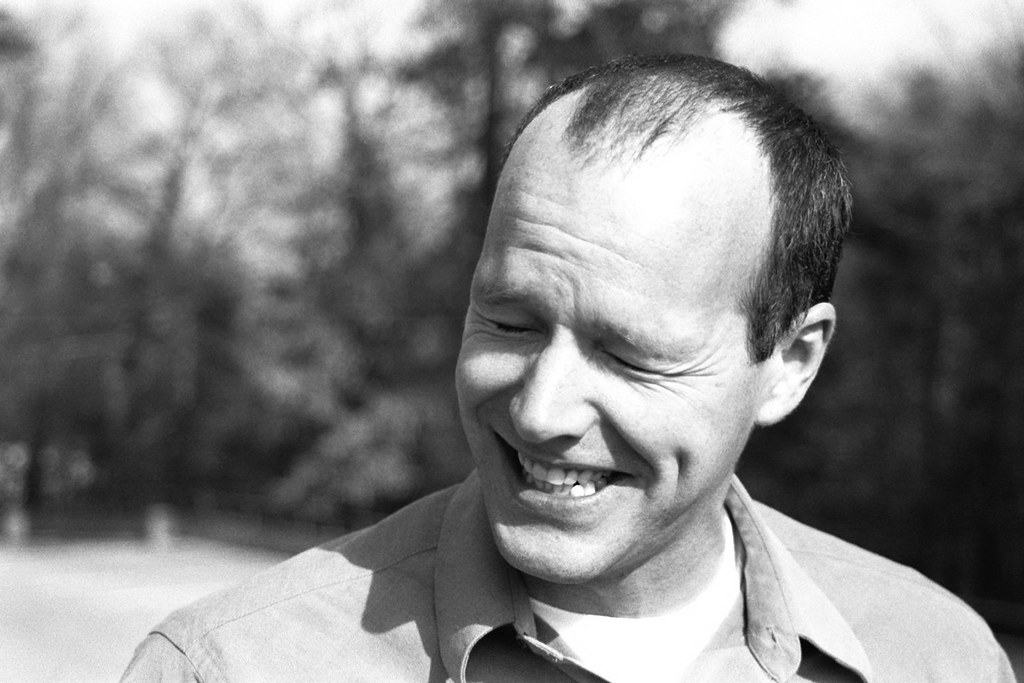Old Introductions: Brenda Coultas & Marcus Slease
6. Brenda Coultas writes, “Something brown, square, and made of fabric, can’t remember what it was: clothes on hangers as if for sale and hanging on gate in snow, tilted firescape held up with rope, mail cart with bucket inside, lump under cover next to shopping cart chained up” and so opens her poem “Sightings.”
7. Like many of Coultas’s poems, “Sightings” concern is with the physical, with cataloging the detritus of our lives: the contents of dumpsters, trashcans, junk yards, dumps, and, in “The Bowery Project,” the contents of New York City’s flophouses. The “lump under cover next to shopping cart” described in “Sightings” is likely one of the many thrown away people drifting at the edges of our periphery that Coultas’s work rigorously documents.
8. She writes, “Some will say it’s all been done before, and that other have done better but still I stack things up. I don’t think about it, I put blinders on but hope that through accumulation they’ll form a pattern out of chaos.”
9. Coultas is the author of A Handmade Museum which was selected by Lyn Hejinian as the 2004 Poetry Society of America’s First Book Award winner. This year she was selected as a Fellow by the New York Foundation for the Arts. A former farmer, carny, taffy maker, park ranger, waitress in a disco ballroom, and the second woman welder in Firestone Steel’s history, Coultas is also the author of the short story collection Early Films.
10. “My own tale is of walking and observing, of imagining. I was not homeless or passed out on the sidewalk, but maybe I was drunk on the Bowery once… I must have been drunk and fallen asleep and must have gotten a blanket or newspaper out of the trash and must have found a box and curled up in it and I must have built a shelter just for one night … I must have hid my face from people, which is what I do when I feel ugly or unhappy and I must have been ashamed and so although all this time I was living in full view of the public, nobody saw me.”
11. Coutlas reveals what a radical act the placing of attention can be, how we choose what we see, that our attention is incomplete. Her work cannot be reduced to something as simple as “One man’s trash another man’s treasure,” instead she is interested in the much more compelling project of revealing what happens when we see another person as trash, what is lost in the act of overlooking.
12. From this exterior, material world, Coultas travels inward: she writes in “Seedhead” – “Are we on time for the mixed breed competition? I entered as a hybrid. My human gene was spliced into a watermelon. The melon cries when cut. My sheep are organ trees. // Mr. Sheep I’d like to get to know you. Hey, I mean we’re gonna be close, like really really close. Hey you who bear my spare liver, put down that whiskey!”
13. In “Memory Jar”, she writes, “Proof exists in the smallest and most mundane of gestures. Shadows, the smell of flowers, electrical shorts, mirror reflections. It’s the most rational and common acts that yield evidence of the spirit.”
14. And so Coultas’s Handmade Museum is enacted: piece stacked on piece, word on word, the most forgettable parts of human experience documented and brought into the account, a collection of evidence meant to map the intangible human spirit.
15. She writes, “To you the reader / Be sure to carry a rose to a fire house / to carry a lit candle down the street / to hang a banner / to wear a ribbon / to visit a hospital / to walk by the wall / to read the wall // The to follow the plume of smoke as close as possible to the source.”
16. Please welcome Brenda Coultas.
17. “dame demon dunce / elf ego / lame larp latty / mangle mame / natty narp nana / oana oana / paddy paddy plarp” writes Marcus Slease in “Dandy Flap,” “voanna voanna / wana wana wance / zoanna zatty” – indeed.
18. Marcus Slease was born in Northern Ireland, moved to Las Vegas, educated in Utah, and landed a few years ago in Greensboro, North Carolina, with a penchant for the frayed edges of language, the places where tongues get tied on the edge of the unspeakable.
19. “the president / is an accident-prone Afghan puppy in a series of / children’s checkers / w/sham ex- / pressions of / false grief / in the / silent city.”
20. Slease does not have a puppy, but he does have some kitties, and he is a member of the Lucifer Poetics Group, has read in the Carrboro Poetry Festival, been published in Fascicle, GutCult, Octopus, Backwards City Review, and is a veteran of two cross country reading tours.
21. “Get out of words, if you can. There’s not nothing when no one speaks. Here we are on an island of unthinkable closeness.”
22. There is no getting out of words for Slease – the language of the world is always intruding into these poems, the language of commerce, of pop culture, of advertising, of philosophy, of the surreal, of history, German, English, Latin, and slang – all these tongues joust for position within his poems.
23. “the Latin for seethe. the German for broken. the Spanish for upsurge. in other in otter we trust. rough house & bed living. the Russian for clock. the Irish for bell.” “have rug: will bum. have soap: will rub. have socket: will poke. have saint: will faint. have choice: will voice. have claim: will amp. have humps: will bump. have prong: will wrong.”
24. With all these tongues at his disposal, Slease creates freakish worlds that often seem eerily like our own world except that in his worlds oxygen has been replaced with nitrous oxide.
25. “My mother gave a hoot and knew the stakes. More and more men headed toward the lake and formed a daisy chain while others welded jazz into the ceiling. This is getaway wreckage for the not so physically fit. Inside the house: a model 1 bed with a lime green sheet and some nervous toiletries. Unfortunately the landlord was besieged after a supernatural attack.”
26. Slease has been a great presence in the local poetry community despite his uncanny ability to find and buy any book worth owning within a two hundred mile radius of whatever position he might occupy.
27. He writes, “I used to be / very funny but / now I’m / very beautiful”, which is not, of course, true: Marcus is very funny and very beautiful.
28. Please welcome Marcus Slease.



0 Comments:
Post a Comment
<< Home